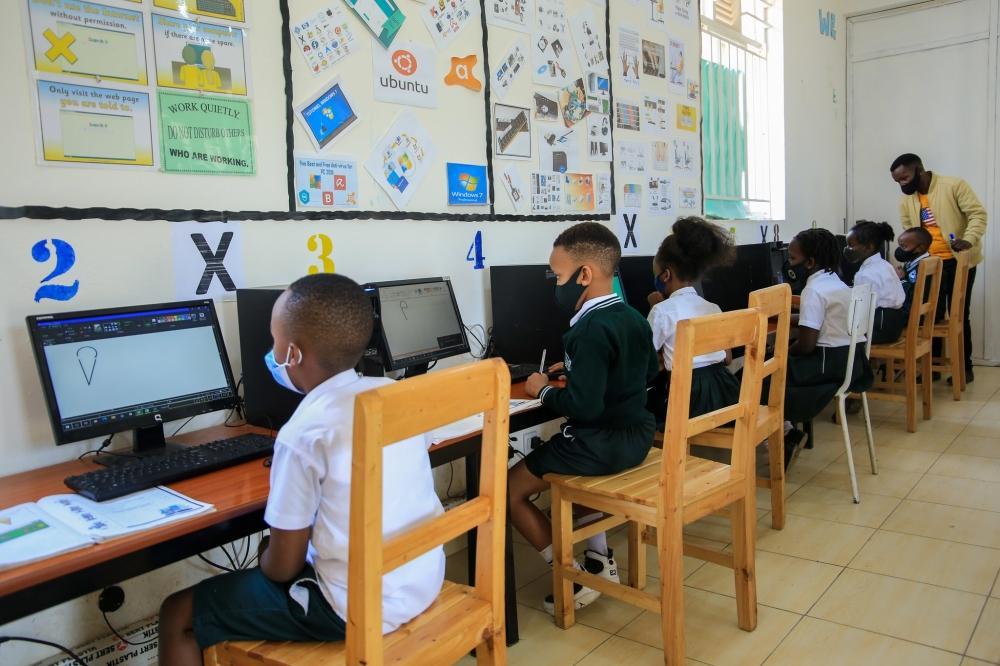Patrick Mugenzi
Africa-Press – Rwanda. Many people hold the view that giving their children a better school is the greatest inheritance they can provide. They spend their entire fortune hoping to see their children grow into valuable members of their families and society.
They believe that after graduating from universities, their children will secure high positions in reputable companies and government institutions.
Yet, over time, they realise that this was an illusion both delusional and destructive. So, what was the missing part in all of this?
Let us examine this closely. The root of the issue lies in a trauma-driven illusion: parents themselves endured what they considered a “bad education,” struggling not only with English or French but also with harsh conditions such as long walks to school, inadequate meals, and other hardships.
Thus, they came to define “good education” as the ability to speak foreign languages fluently, even more than speaking their own mother tongue.
They are often impressed when a child speaks English or French but rarely feel ashamed when a child struggles with Kinyarwanda. This colonial mindset is reinforced by schools where children are humiliated simply for speaking their mother tongue.
Parents, unfortunately, deepen this mindset by making the choice to communicate with their children in foreign languages at home, creating an environment where the child grows up detached from their cultural foundation.
Consequently, children are limited to communicating only with people who also speak foreign languages. The impact becomes greater when they interact with fellow citizens who only speak Kinyarwanda (or any other African language) and struggle with foreign ones.
Such a child feels embarrassed, disconnected from their roots, and unable to communicate with their grandparents. This new generation risks suffering from cultural disconnection because language carries culture, and the national language, Kinyarwanda, preserves Rwandan values, heritage, and collective memory.
Losing this connection means losing the very lens through which one understands identity.
When someone is more connected to the Western world through language, they inevitably embrace foreign cultures and values. That is why it becomes easy to use vulgar words in front of parents or elders, what is unacceptable in Rwanda might be normalized elsewhere.
Over time, a person with little connection to Rwandan culture begins to feel uncomfortable with their own language, culture, and values. The classroom alone cannot transmit values that have always been passed on through family narratives, communal life, and shared traditions.
Children are thus becoming victims of parents who believe that sending a child to an expensive school can replace home education. Yet it is at home that children learn discipline, integrity, hard work, patience, and commitment. These noble values are what sustain children throughout life. Attending a prestigious school alone is never enough.
What truly makes someone successful and impactful is vision, discipline, commitment, and hard work, which can only be nurtured consistently within the family environment.
Earlier generations baby boomers and Gen X were taught important lessons, though they often took them for granted. Some even resent those years, saying, “We went through hardships, and I cannot let my child suffer the same.” Yet little did they know that those hardships were the very catalyst of their success. Life shows us that emotional intelligence plays a vital role in success.
It refers to the ability to perceive, understand, and manage one’s own emotions and relationships, which is crucial when dealing with stress, confrontation, change, and obstacles.
The older generation was forged by challenges such as walking long distances to school, enduring unwelcoming treatment abroad, and facing many other struggles.
These experiences strengthened their emotional intelligence, shaping them into resilient, impactful individuals in their families and communities.
This emotional intelligence is largely missing in the new generation. That is why depression is rising, and why commitment and patience are increasingly scarce. Many children were given everything they wanted instantly, without ever learning patience.
Yet patience is a core element of emotional intelligence: it allows a person to pause, recognize emotions, and respond thoughtfully instead of reacting impulsively. It fuels motivation, supports long-term goals, and helps one stay committed despite setbacks.
Without patience, young people become easily frustrated, lose focus, and are unable to persevere when life’s inevitable challenges arise.
Parents, therefore, should prioritise home education alongside formal schooling, emphasizing discipline, commitment, patience, and patriotism, often through teaching children their local language, Kinyarwanda. Learning one’s language imparts values, humor, and cultural wisdom, showing that language is not merely a communication tool but a vessel of identity.
While schools provide knowledge, families instill wisdom, emotional strength, and moral grounding. True education is measured not by fluency in foreign languages or costly tuition but by the ability to think critically, solve problems, uphold values, and develop resilience and emotional intelligence, shaping grounded citizens who serve society with humility, wisdom, and strength.
Source: The New Times
For More News And Analysis About Rwanda Follow Africa-Press






